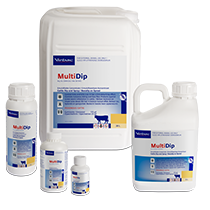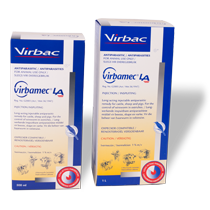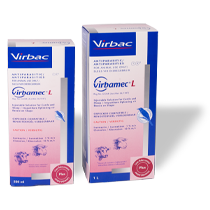
BEEF COW MANAGEMENT PRE CALVING: Parasite Control
This is article 6 of 7 articles on this topic
Parasites can have a detrimental effect on cattle performance - from reduced feed intake on the one hand to mortalities on the other end of the scale.
It is thus important that we be aware of the parasites that may cause problems and treat them before it has an impact on cow performance:
PARASITE CONTROL
Internal parasites
What you can’t see, can cost you dearly! Internal parasites are generally seen as not that important in cattle production - especially in adult cattle. We rarely see mortalities and it is sometimes not that easy to detect the negative impact of internal parasites - especially with roundworms. Liver fluke and conical fluke on the other hand, can have devastating effects if not treated timeously.
Internal parasites can lead to a reduction in feed intake that will effect body condition score with all the negative effects that goes with it. If the cows were not treated for internal parasites at the end of the autumn or sometime during the winter, a cleanout before calving should be considered.
However, in liver fluke areas, a liver fluke treatment before calving is advised to prevent cows from being treated during the calving season. The liver performs so many essential functions and anything that negatively affects its optimal functioning, can result in a ripple effect of negative consequences e.g. poorer condition, lower milk production and reconception. The liver is the “pantry and the stove” of the cow that needs to function optimally to be able to perform important functions such as:
-
Production and excretion of bile - brake down of fat during digestion
-
Excretion of bilirubin, cholesterol, hormones etc.
-
Filtration and excretion of toxins and other substances
-
Metabolise fats, proteins, and carbohydrates from volatile fatty acids
-
Activation of enzymes
-
Storage of glycogen (energy), vitamins, and minerals - especially trace minerals
-
Synthesising plasma proteins, such as albumin, and clotting factors.
External parasites
The negative effects of external parasites are much more noticeable than that of internal parasites. Pay special attention to the occurrence of lice, that can strike during and up to the end of winter, when the animals are heavily pregnant and under nutritional stress.
Lice cause great irritation and can impair the condition of the cows with all its negative consequences. When cows start to scratch against any structure, consistently licking themselves and bare patches starts to appear with a loss of hair - action must be taken immediately.
In the warmer areas, the occurrence of ticks should also be monitored carefully. The long winter coat make it difficult to see the presence of the small larval and nymph stages of the ticks. Remember that for very one engorged female blue tick on an animal, there are already 162 ticks of different stages of development present! A winter treatment will reduce the number of multi-host ticks during the peak tick season, as it will remove the larval stage that over winters on the animals.
With an increase in temperature, the presence of flies can also become a nuisance. It leads to irritation, reduction in feed intake as well as the transmission of diseases and must be treated as needed.
Don’t underestimate the negative effects of parasites!
6009230802DVN

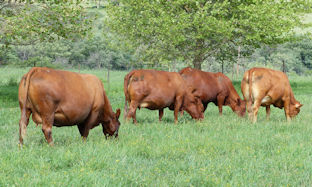
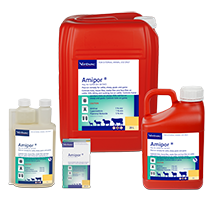
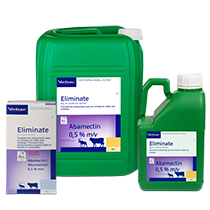
.png)
